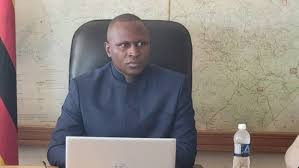
It is now more than 12 months since President Emmerson Mnangagwa took office in November 2017. The general feeling among Zimbabweans is that nothing much has changed since both the coup and the July 30 2018 elections. In fact, due to the challenges being experienced currently, some are of the view that the situation has deteriorated. Just how much time does this leadership need to prove that good times are even possible during our time?
develop me: Tapiwa Gomo
This feeling among most people suggests that the new administration has failed to deliver on its promises and confidence is waning. We cannot blame them given the cacophony of policies and positions. Multi-currency and multi-exchange rates do not inspire confidence and neither do they demonstrate leadership. Economic instability and unemployment continue to be the order of the day.
But then, just like in any situation, there are more sides to a story. In politics, failure is sustained by excuses. For example, those on the side of the new administration think it is too early to judge the current government, given that they inherited a tattered economy which they helped destroy. They argue that the policies put in place after the 2018 elections are yet to bear fruits. I once toed this barren line based on what we knew as Mnangagwa’s shrewd leadership character. But it turns out today that these are lame and mundane excuses as old and feeble as the sanctions excuse.
To demonstrate that a determined leadership does not need as much time to prove their ability to transform their nations, I use the example of the late Malawi President Bingu wa Mutharika and current United States leader Donald Trump. Malawi is described as a third world country, while the US is a first world country. Both leaders’ tenures faced numerous moral challenges and global pressures which threatened their economic growth agendas.
Mutharika was the President of Malawi from May 2004 until his death in April 2012. He took over a country ranked among the poorest in the world and a government that survived on donor funding. Malawi experienced food shortages due to economic and climatic factors since its independence in 1964. Upon assuming office in 2004, he launched his agriculture reform policy aimed at increasing agriculture production to spawn the country’s economic growth.
The launch of the agriculture policy was not without its own challenges. International finance institutions refused to provide funding and they opposed the policy, so did other major donors. Mutharika had a choice to drop the policy due to pressure and lack of adequate resources or to proceed. He chose the latter and went ahead with the implementation of his policy with the little aid his country secured, mainly from the Scandinavian countries.
Twelve months into office, the rolling out of the agriculture policy programme had commenced and Malawians got busy in the field tilling the land, sowing and fertilising seed. During his first term in office (2004–2008), Malawi had achieved a high rate of agricultural production and food security and benefited approximately 1,7 million resource-poor smallholder farmers. The upward trajectory continued into the 2005/2006 cropping season, when Malawi achieved a food surplus of more than 500 000 metric tonnes, which would reach 1,3 million metric tonnes by 2008/2009 planting season. The effects of those four years, saw the share of Malawians living below the poverty line fell from 52% to 40%.
- Chamisa under fire over US$120K donation
- Mavhunga puts DeMbare into Chibuku quarterfinals
- Pension funds bet on Cabora Bassa oilfields
- Councils defy govt fire tender directive
Keep Reading
If Mutharika was of the same calibre as our leadership today, he would have safely used the excuse that the international finance institutions had refused to provide credit lines. While Mutharika’s success story was short-lived due to the emergency of bad politics, it gives credence that the economic transformation of a country can be experienced within 12 months, something that is a far cry from our current situation.
A similar situation can be seen in the United States, where Trump assumed office on January 20, 2017. Despite his controversial policies, his time in office thus far has seen the American economy achieve feats most critics thought impossible. He, too, had a myriad of excuses at his disposal. The Russia investigations continue to threaten to cut short his tenure, if they decide to impeach him. He took over at a time when the global economy was shaky, with China, Russia and India threatening to overshadow the US economy.
Faced with all these and many other challenges, Trump has remained strong and unrelenting. By the time he clocked 12 months in office, there were telling signs that the economy was on a positive trajectory. By mid-last year, the numbers were already coming together. Gross domestic product grew at 3%. Unemployment rate was at its lowest in 50 years and the stock market spike to nearly 30% as corporate profits surged.
The similarities in these two leaders, which make them different from ours, lie in how much they value performance and results. Mutharika had a choice to pocket the little aid he secured from the Scandinavian countries and feed Malawians with excuses that the international community derailed his policies as the reason his people were hungry. But he chose to perform and produce and he got the results.
He was both rewarded and awarded. Trump, too, had a choice to blame Democratics for waylaying his economic growth policies through their push on the Russian investigation. But no.
He, too, knows that nothing brings clean political support than a growing economy. It’s all about performance and results.











